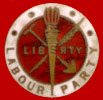Around 350 Labour Party members, trade unionists and socialists
attended the 2011 LRC (Labour Representation Committee) “Resist the
Cuts, Rebuild the Party” conference at Conway Hall in London on January
15th. LRC Conference tends to major on the big events of the day. Two
years ago it was the economic crash and last year the general election.
This year the conference was not surprisingly dominated by the threat of
cuts and the need to defeat them.
Around 350 Labour Party members, trade unionists and socialists attended the 2011 LRC (Labour Representation Committee) “Resist the Cuts, Rebuild the Party” conference at Conway Hall in London on January 15th. LRC Conference tends to major on the big events of the day. Two years ago it was the economic crash and last year the general election. This year the conference was not surprisingly dominated by the threat of cuts and the need to defeat them.
The discussion around the cuts brought out some clear issues. The correct demand that Labour councils refuse to implement the cuts was raised by several speakers while an Islington councillor argued that if the council didn’t set a budget then Eric Pickles and the government would set one for them. The argument was very different to the early 1980’s when the dominant idea among some on the left was for rate rise to offset cuts, combined with large doses of “creative accounting.” At that time the argument of the Marxists for “no rate rises, no cuts and a campaign to fight the Tories” was in the minority. The legal constraints and loss of power in local authorities mean that there is very little in the way of leeway compared to the past – which means that they have very little room to manoeuvre. The choice now is much clearer, fight the cuts or accept them. Ed Milliband chose the same day as the LRC conference to announce that Labour had been “too slow to admit the need for cuts or regulate the banks.” Socialist Appeal calls on all Labour councillors to not only oppose the cuts and organise against them but also to refuse to vote for or implement any such cuts in the council they serve on. The blame for these cuts must rest firmly on the backs of this Tory led coalition and the ruling class. In the coming months as councils agree budgets, this issue will become critical for Labour councils and councillors. The LRC cannot sit on the fence over this but must make the conference position clear to all in the movement.
The fight against the cuts needs to be political and many speakers made that point. Matt Wrack from the FBU argued that there was a real need for unity in the anti-cuts movement and that the various campaigns needed to rise above sectarian rivalry. Steve Brown from the Northern Region LRC successfully moved a resolution which outlined a series of clear demands around the reversal of cuts and privatisation, the nationalisation of PFI projects, a massive expansion of council housing and a massive scheme of public works and the nationalisation of the banks. Other resolutions also called for nationalisation of the banking and financial sector. One speaker called for the conference to “Think Big” and argued that we should demand an emergency Labour Party Conference on the cuts.
Conference discussed the relationship between the LRC and the Labour Party and a motion which would have altered the emphasis of the LRC position – which is essentially to work both inside and outside the party, was defeated by a majority of more than two to one. The motion had argued that by using the slogan “Rebuild the Party” the LRC was alienating unions such as the RMT, FBU and the PCS which are not affiliated to the party (for different reasons).
The conference was a success for the LRC which has a membership of over 1000 paid up members, affiliations from 6 national unions, PCS, FBU, RMT, BAFWU, CWU and the NUM and a growing number of local groups, most recently in Hampshire and Teesside. There were a number of union caucuses and a greater sense of cohesion and perhaps more younger people than previously. The cuts have focused the attention of the Labour and trade union movement and there is a sense of urgency pressing down on it.
The LRC represents a significant part of the current left within the Labour Party, but that left is still relatively small and isolated. As such the LRC is really an anticipation of what is to come. The forthcoming crisis in the public sector will have huge repercussions within the trade union movement and later within the Labour Party itself and that was reflected in the debates at conference. The position of the Labour leadership that “the need for cuts ought to have been admitted earlier” will only serve to raise the likelihood of an opposition developing in the party. Already John McDonnell reported that he’s met people in the “No lobby” in the House of Commons he hadn’t seen for years. Sooner or later one or more prominent Labour figures will begin to shift to the left. It’s likely then that the LRC will have the potential to become part of a much bigger leftward shift in the Party.Much will depend on whether it is able to play an active role in the struggle based on clear socialist demands.
One thing is for certain the working class and the labour and trade union movement will come under huge pressure over the next few years and more than ever there is a need for a fighting socialist leadership. Socialist Appeal supporters will continue to play a role in the LRC arguing for the ideas of Marxism at a local level and on the National Committee. 76 copies of the paper were sold at this year’s conference, an increase of around 25% on the last conference in November 2009.






